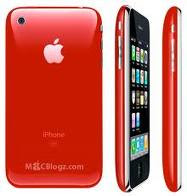 SAN FRANCISCO/LAS VEGAS (Reuters) - The smoke has finally cleared on Google Inc's highly anticipated Nexus One smartphone, but the ramifications of the Internet company's new role as a mobile phone vendor are still hazy.
SAN FRANCISCO/LAS VEGAS (Reuters) - The smoke has finally cleared on Google Inc's highly anticipated Nexus One smartphone, but the ramifications of the Internet company's new role as a mobile phone vendor are still hazy.For established wireless companies, Google represents a new heavyweight jumping into the ring. And in bypassing the wireless carriers to sell phones directly to consumers, the No. 1 Web search company isn't playing by the usual rules.
That doesn't bode well for the carriers, such as AT&T Inc and Verizon Wireless, which control the sale of phones through storefronts scattered across the United States.
But for all Google's might on the Internet, analysts don't see it upending the wireless business model in the near term, saying the company must tread carefully so as not to upset the business partners of its Android mobile operating software.
"They need the carrier partners and the handset partners to push Android forward. It's kind of a fine line they have to walk," Pacific Crest Securities analyst Steve Clement said. "They can't really step on the feet of the partners who will ultimately make Android."
"The carriers have made a big investment in their own retail presence," he added. "There are better economics for them to manage subscribers through their own channels."
Google released the sleek, touchscreen Nexus One phone on Tuesday, the first of many devices that it plans to sell directly online to consumers. Motorola Inc told Reuters on Wednesday that it also plans to make a phone, possibly carrying the Motorola brand, for Google's direct sales channel.
These moves come two years after Google announced plans to develop Android, which is used on more than 20 devices.
Google's real goal may not necessarily be to become a consumer electronics vendor and compete with the likes of Apple Inc, some analysts say.
Instead, Google wants to spur the adoption of Android to help ensure that its online services continue to get prominent placement on the new generation of Web-enabled mobile devices.
"I don't think this is about Google looking to change the way cellphones are bought and sold," said Jefferies & Co analyst Youssef Squali. "If that changes, then so be it, but it will be a by-product of Google trying to get phones into people's hands."
APPLE UNLIKELY TO FOLLOW SUIT
The Nexus One has garnered positive reviews, though analysts say its overall design and price are not as revolutionary as might have been expected.
Thus, they do not expect Google to wield as much industry clout as Apple, for example.
Analysts say they do not expect Apple to follow suit with an unlocked version of the iPhone in the United States, as the price of the device sold without a carrier contract would be too high to appeal to consumers. Many have leveled the same criticism at the $529, unlocked version of the Nexus One.
Google has said that it expects to bring prices down by selling the device directly to consumers.
But Philip Cusick, an analyst with Macquarie Research, said the exclusive online sales channel could limit the phone's appeal to the mass market, since many consumers like to touch and feel a device before buying it.
Some analysts had speculated that Google could offer its own wireless service by becoming a virtual network operator and resell the carriers' airwaves, but that business model has not proved successful for many companies that have tried it.
Wireless carriers are ever-vigilant about being cut out of the picture, and reduced to the role of playing a "dumb pipe," but they likely will view innovation from players like Google more as an opportunity to bolster wireless data revenue than a threat, Cusick said.
"Right now you've got a situation where the carriers don't want to crimp what's becoming a really interesting mobile data world," Cusick said.
So far, wireless industry incumbents aren't panicking. Deutsche Telekom's T-Mobile USA and Verizon Wireless are both supporting Google's efforts.
"It doesn't take anything away from the carriers," said Glenn Lurie, the AT&T executive in charge of emerging devices, at the Consumer Electronics Show in Las Vegas on Wednesday.
AT&T announced on Wednesday that it would offer five Android-based handsets in 2010 from vendors including Motorola and HTC.
A Samsung Electronics Co spokesman said the company had no intention of backing off plans to offer additional phone models featuring Android software in 2010, even though Google's Nexus One is now a competitor.Read More.....

0 comments:
Post a Comment